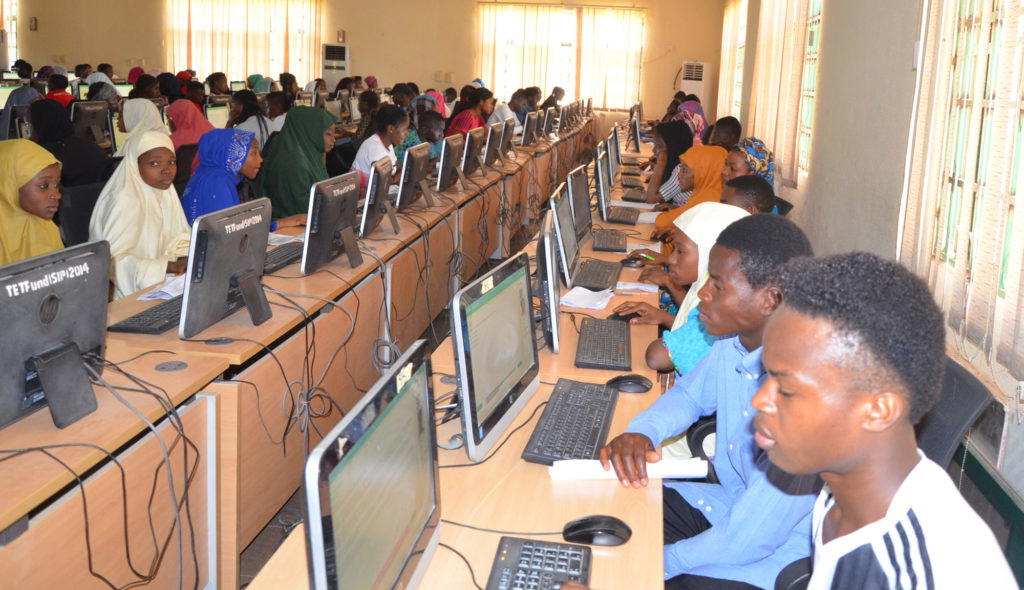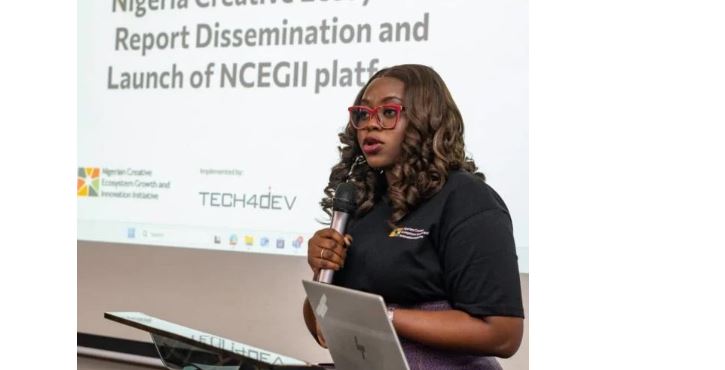
Gender equity: Cultural forces widening Nigeria’s gender gap in tech ecosystem,
•Women represents just 17% of the tech professionals in Nigeria
•Only 22% of female students study engineering/technology in Nigeria universities
•45 Million Nigerian women‘re without access to the internet
•Just 30% of STEM researchers globally are women
By Juliet Umeh
Despite Nigeria’s growing digital economy and the push for tech-driven development, a stark gender divide persists in the Information and Communication Technology, ICT, sector.
Worse still, most Nigerian secondary schools still have very few girls enrolled in Science Technology, Engineering and mathematics, STEM fields.
Statistics from United Nations Educational, Scientific and Cultural Organisation, UNESCO show that girls and young women remain significantly underrepresented, held back by cultural, educational, and systemic barriers.
For instance, the National Bureau of Statistics, NBS, as of 2023, only 22 percent of students enrolled in engineering and technology programmes in Nigerian universities were female.
In fact, this trend mirrors broader global patterns: UNESCO reports that just 30 percent of the world’s STEM researchers are women.
Even, a 2023 report by Women in Tech Nigeria revealed that women make up only 17 percent of Nigeria’s tech workforce. Additionally, the Alliance for Affordable Internet, A4AI, noted that 45 million Nigerian women lack internet access.
However, this year’s Girls in ICT Day celebration by E-Business Life magazine brought renewed attention to these issues.
With the theme “Bridging All Divides for an Inclusive Digital Transformation,” the event featured voices from industry leaders, advocates, and mentors united in their call to level the playing field for girls in tech.
Role of culture and upbringing
For many Nigerian girls, the limitations begin at home.
Head of Cybersecurity and Compliance Advisory at Digital Encode Limited, Bisola Oladejo, said: “Some families still believe that a girl should not be too educated or ambitious, so she doesn’t intimidate her future husband. That mindset is a significant obstacle. It takes away her freedom to choose her path.”
Echoing the same sentiment, Managing Director of an Edutech Institute, Austangel Nigeria Limited, Mrs. Joyce Atsagbede, said the whole problem starts from family.
She said: “It begins with the toys we give our children. Girls get dolls; boys get cars or tech gadgets. That subtle socialization teaches girls to avoid science and tech from a young age.”
Digital infrastructure and economic barriers
Beyond cultural stereotypes, lack of infrastructure is a significant barrier, particularly in underserved areas.
“In urban areas like Lagos, we’re seeing progress,” said Atsagbede. “But in villages, nobody is talking about ICT. There are no labs, no internet, and no digital curriculum.”
According to A4AI, over 45 million Nigerian women lack internet access, compared to 28 million men. Girls in rural Nigeria are 30 percent less likely to own a smartphone or access the internet than boys.
This digital divide reinforces economic inequality. Without internet access or ICT tools, rural girls are left behind in a rapidly digitizing world.
Poor early exposure and lack of role models
Also, publisher of E-Business Life and the force behind the 13-year-long campaign, Ufoma Emuophedaroa, confirms that early exposure makes all the difference.
Emuophedaroa said: “Some girls who attended our event in SS1 have gone on to study ICT-related courses and are now working abroad.”
Inadequate government support
Meanwhile, Ufoma recounted: “One of the biggest frustrations among advocates is the limited involvement of the government.
“I once invited a federal agency to support the programme, they asked me to cover the minister’s hotel, meals, and flights. I was shocked. Shouldn’t this be a government priority?”
Despite the National Digital Economy Policy (2020–2030) recognizing digital inclusion, critics argue that implementation has been slow, especially in rural communities.
“We must show girls that tech is not just for boys,” Ufoma said. “With passion, access, and the right support, girls can be anything, even leaders in ICT.”
If Nigeria is to benefit fully from the promise of the digital age, breaking these gender divides is not optional, it’s essential.
Way forward
To close the gender divide in ICT and STEM, stakeholders are calling for:
*Early education policies that introduce girls to coding, robotics, and digital skills in primary and secondary schools.
*Community and parental reorientation programs to debunk harmful stereotypes about girls and science.
*Infrastructure development in rural schools, including internet access, devices, and trained teachers.
*Increased government funding at both federal and state levels to support inclusive digital education.
The post Gender equity: Cultural forces widening Nigeria’s gender gap in tech ecosystem appeared first on Vanguard News.
,
Despite Nigeria’s growing digital economy and the push for tech-driven development, a stark gender divide persists in the Information and Communication Technology, ICT, sector.
The post Gender equity: Cultural forces widening Nigeria’s gender gap in tech ecosystem appeared first on Vanguard News.
, , Nwafor, {authorlink},, , Vanguard News, May 21, 2025, 1:41 am












